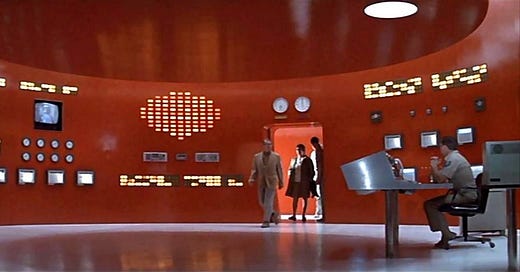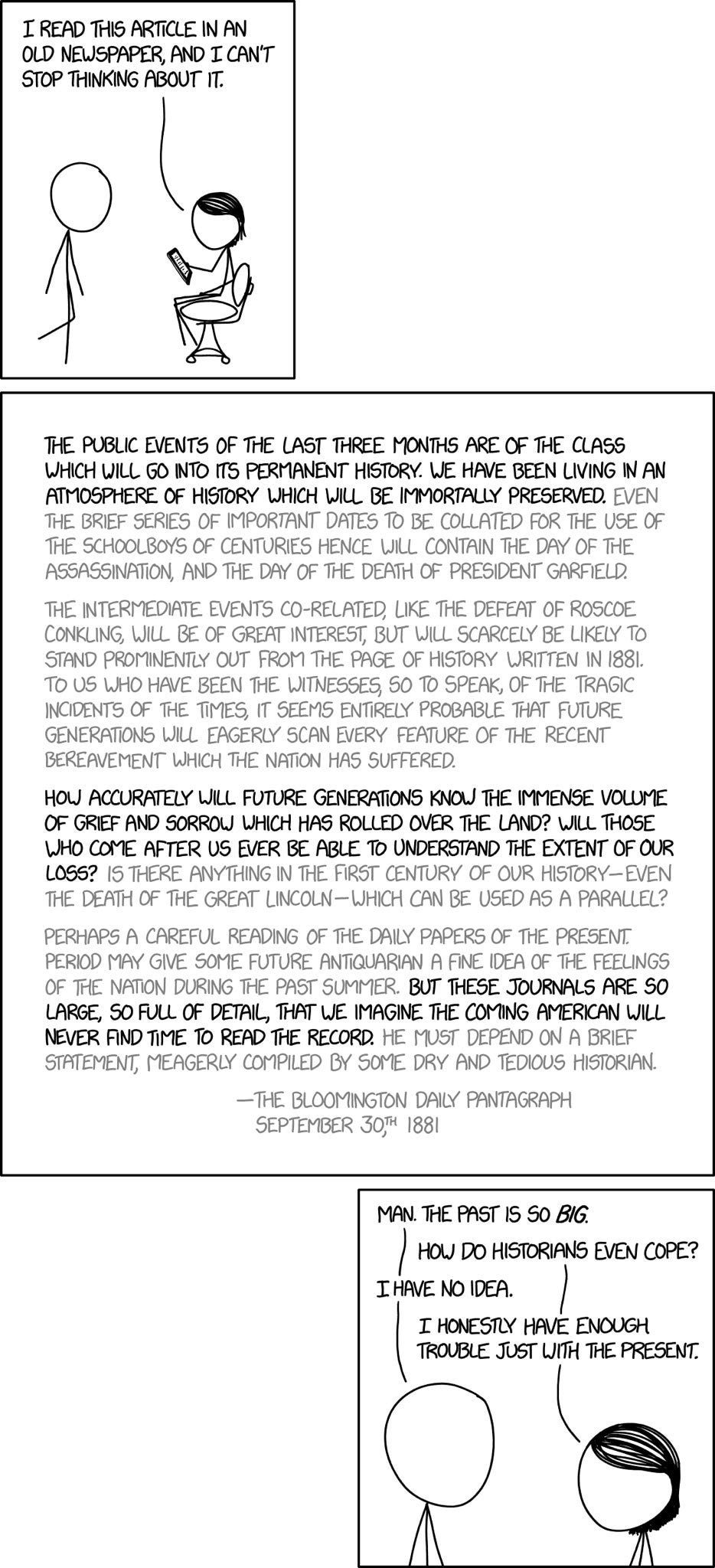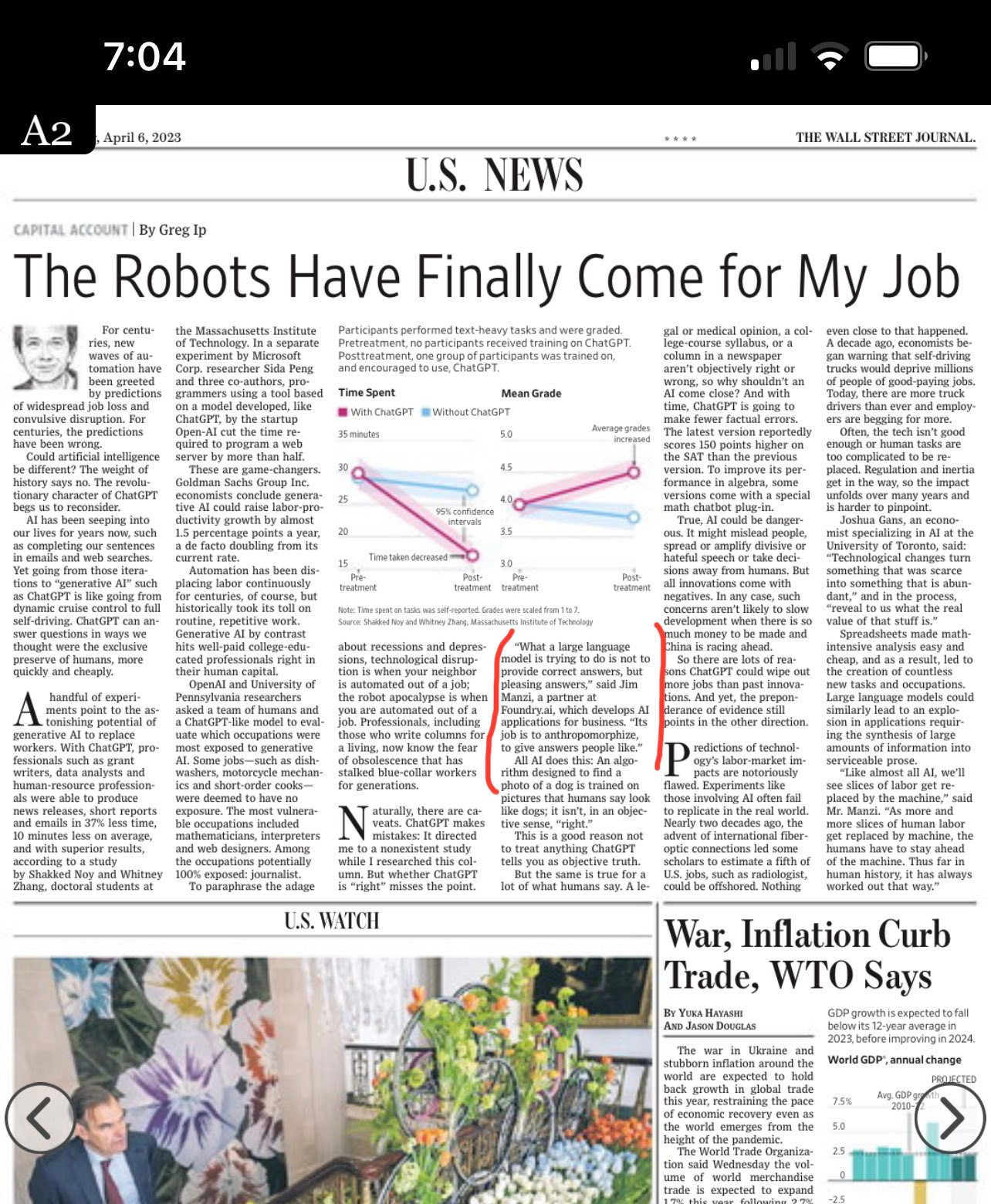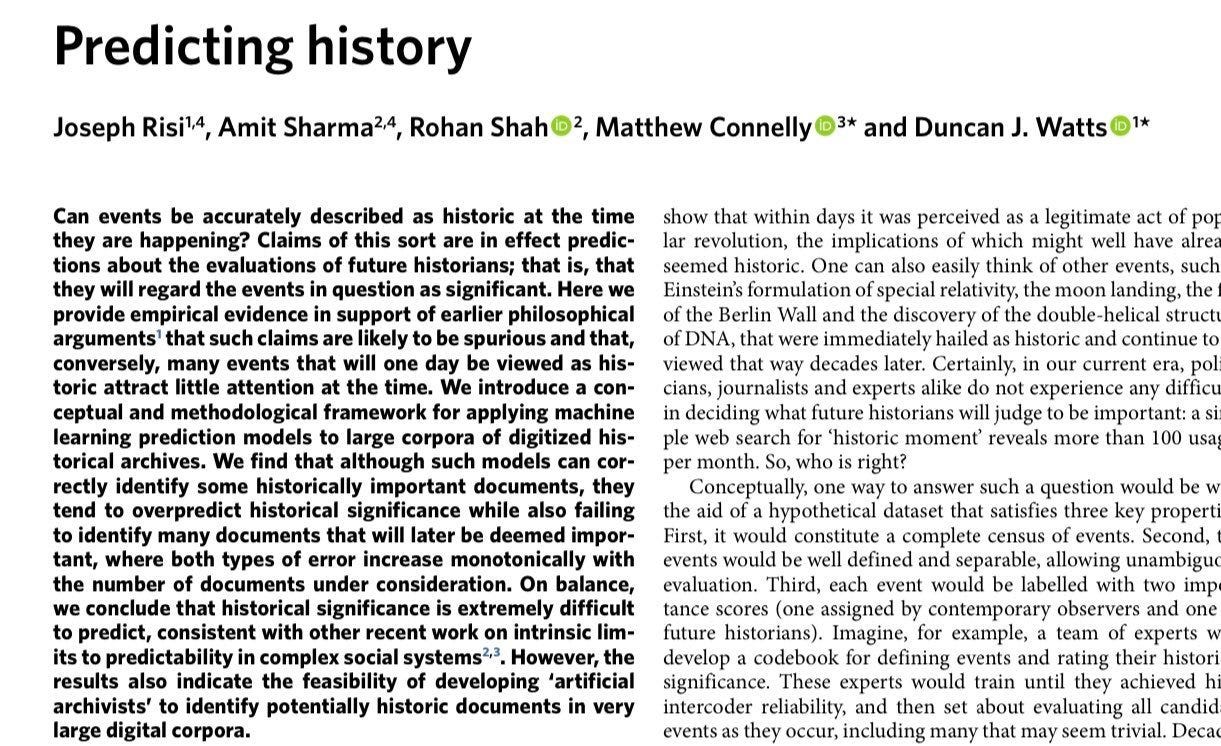A Great Interruption of the hijacking of time and attention is just over the horizon.
This is a riff on an Age of Interaction, during which we surrendered our attention in an Age of Distraction, where networks consumed every waking moment.
A Great Interruption of the hijacking of time and attention is just over the horizon.
Technology delivered onto us something powerful, and although we have reason to be wary, we also have reason to welcome the beginning of the end of old distractions.
I will upset both Engineers and English Literature majors with this piece, that’s something the machines can’t do (yet). It is neither technical nor literary but it is me.
Welcome to some improvisational jamming on the Next Internet.
I wrote the following verse months ago, and saved it for a free moment to write in prose, about the nature of our attention and perception.
Why will we waste
countless waking moments
closing the gaps between our maps
of reality and unknowable uncertainties
When our best memories
were when we lost ourselves
in the space between spaces
and find new unreal realities
Welcome, to the dawn of The Great Interruption, an era that may be known only after the fact. It’s our chance for escaping another monster of the Information Age, The Great Distraction. We can return and reclaim our attention with the rise of new tools.
Information and Attention are as old as the caves.
They were born at the same time, like Romulus and Remus, Cain and Abel, and all the founding siblings of the rolling ascent and decline of humanity. When they work together, they are the greatest allies, but when they are at odds they become the deadliest of rivals, and a burden for Man.
In the beginning, most information was for survival, our reaching for the bounty of the Earth with the reasoning of our senses, and salvation, our reaching to the sky and realms of the spirits. As the eons rolled by, our numbers increased, and so did information, which in turn increased our numbers, further increasing information.
It was simple at first to know where to look, who to turn to, for what we needed.
It was our attention’s task to be the rudder we use to steer through local waters of home, through marshes, and past the reeds, to find what must be known to live.
With each passing generation, we burned old maps and made new ones, as we strayed from the coastlines of old understanding.
Attention drove us to reach for each other, in search of navigators of the waters of knowledge. We defied even time itself, despite our mortality, through our works left on walls, with our ways of life, and drop by drop, the waters rose. At last, with our words, we became endless rivers of information.
With each passing day, since its first sunrise, mankind found itself in deeper waters.
The artist Nam June Paik, in his later years, corrected his description of what was unfolding before his unique idiosyncratic vision of reality. At first, in 1974, he told the Rockefeller Foundation that he saw Electronic Super Highways but later changed his mind, and began to perceive an Ocean arriving, and said, “not a highway, but a boat in the ocean; we don’t know where the shore is”.
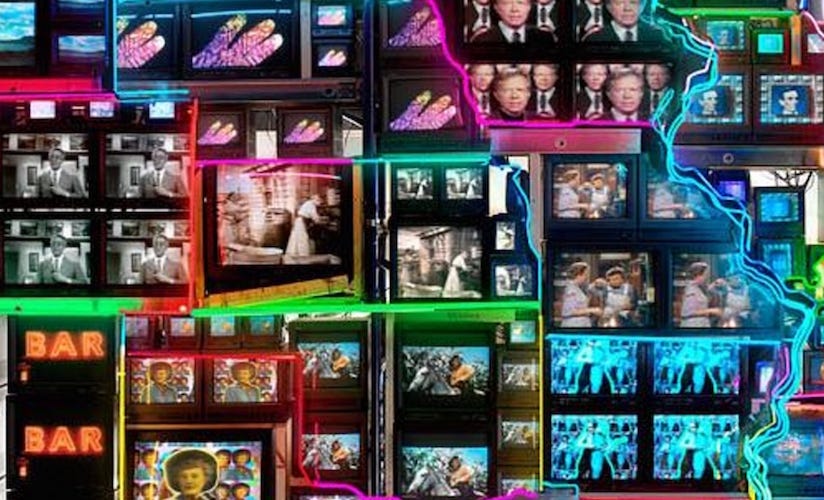
The best information either holds us in place, or sets us free from unknowns. Our tethers becomes anchor lines, at first holding fixed our position, but now we sink under the weight of each others’ grasping for attention.
We drown under the ballast of our knowing of an ever expanding everything, and worse, by everyone wanting our eyes on everything they have to trade for status and advantage whose price is always high, for time is expensive.
We distract each other, as we strive for attention, so much that we lose sight of much more than the signals we were listening, waiting, and sometimes aching for, we lose ourselves in the noise of information meant for another’s eyes.
A cartoon by XKCD hits it right.
The information waters rose, and attention became an anchor chained to our feet.
Attention became algorithmic and information became knowledge but not wisdom.
Right now, it’s still a risk, going from panopticon to kaleidoscope, from prison cell to pleasure dome. The new risk are fair-sounding “pleasing answers”, decoys for attention, enough to keep us from asking more questions, and following through.
The “right” outcome, if there is one, is that we redirect the optics to focus on interests. If we are wise, and lucky, we will replace fun-house mirrors with microscopes and telescopes.
We won’t know, until we’re looking back, at what was a historically important.
There is so much going on, or more rather, so much is being sent our way, that we become less likely of knowing. We don’t even need to review two million diplomatic cables in a study, to know this happens in something more important - personal life.
Ethan Mollick noted that whatever held attention was at the expense of whatever was going to turn out to be important AFTER the fact, “We don't know if we are in historic times while we are living through them. This study of 2M diplomatic cables* found that while some events that are historically important are noted at the time, far more often (1) events seem historic but aren’t, or (2) historic events are missed”.
Below an abstract of a paper (h/t Mollick) about “Predicting History”.
And what is happening that could be really happening?
We think we know the world, what we need to know, and what we need, and have a common language at the ready, to ask for it but then something new scrambles it all.
Interruptions I hope for will unsettle our syntax of reality, with a jarring pause, just long enough to reclaim our time and attention. We will be knocked off a perch of old perspectives, where the gaze is redirected by the beauty of novelty, the next exotic, until the brief daze relents and we update bearings.
We feel different about “everything” and look away from what imprisoned our eyes.
Our attention was hijacked in the first place because we don’t think, feel, and then act. We feel, we act, and then we think up a reason to justify. We are more often led than just informed by our emotions. That is also the pathway for our escape. And we will need new tools, in our possession, to free ourselves.
I see something new that could help us get out of Platform Attention Jail. Touching grass is not enough for disrupting distraction at scale, and I gave it a name so that I could begin to work on it more: Interest Grids.
Attention is changing.
Most people are focused on calculation, duplication, recreation, replication, and transformation but attention might be the most keenly felt change looking back from the future.
I mention transformation as in “transformer”, as in a research paper entitled, “Attention Is All You Need”, about the faster training of machine learning models. This paper would lead to ChatGPT but I am focused less on the current mania, which will dissipate (because that’s how Attention Monsters work, which will be helpful), and more about something different.
Since this research paper that was released in 2017, so much has happened, a Cambrian explosion of machine learning projects and experiments. Tucked away, however, under the crowd hysteria and hubris, I sense there lurks a new set of microscopes and telescopes of the mind, ready to help us see and build a new “Internet”.
This is a stepping off point, where the real riff begins, about what I imagine is coming.
This is the fiction writer in me working through a potential future for Attention.
Here is a wish list for a new “Bicycle” to go off-roading on the next “Internet”:
What do I think is the next new thing happening between information and attention?
A new constant in information and attention: Interest Grids > Social Graphs
I begin to answer for myself, with a run-on sentence*, “what is an Interest Grid, sir?”:
A hand-stitching of swatches into one tapestry of the outside world, self-woven in sincere ways, powered by what we’re curious or care about.
*This could be where all of our attention is under our supervision, instead of being harvested and then dispensed by platformed silos of social graphs, populated with performative status, and passive-aggressive games, within manicured walled algorithmic gardens, whose owners wield the power of exile or imprisonment.
The hand-made tapestry of our attention would be ordered by an internal indexing for non-transactional interaction, free of stomping and dunking on strangers for sport, because everyone has better things to do. An internet of interest grids by our consent.
Some people say the “Fediverse” will do this but that is, I think, a part of the puzzle. There will need to be a private weaving of all of our residences across different “spaces”, built on different platforms and protocols, into an interest grid bespoke for each of us. The current tech titans have been at war, drawbridges have been raised, and APIs can not be taken for granted. But new upstarts are starting up.
It’s a given that the deep pockets and vested interests of platforms will fight change. The harder part will be the customs and habits of billions of users “trained” by the platforms for life in silos. It will be a messy, as usual and always, disorderly transition.
This is going to have to be from the ground up, with machines running in our pocket.
Interest Grids could be enabled by machines of our own, doing our bidding, running interference with distractors and attention-vores, a researcher and assistant for our first brain, mimic acting as stand-in for us, our surrogate at the gates, the intermediary who stands watch over the doors of our perception.
They will need a nudge, perhaps in the form of individual machines, personal Instrumentalities which may be the next generation of models of machine learning.
I answer another question for myself, “what is an Instrumentality and what does it do?”
We can move on from search engines to what I will call Socratic Engines. We won’t have “content” anymore, so much as conversations with Instrumentalities, that some with older sensibilities would mistake for living man-made, but not born, intelligences. Imagine that it’s more talking about everything and anything, all private, and not “prompts”.
For now, and just for me, they are super-scaled, shape-shifting statistical stencils but they won’t stay that way, not if dreamers and devs have anything to say about it.
The Instrumentalities will provide augmented intuition, not artificial intelligence (a term that just brings on premature expectations), running on individual downloadable, retrainable instances, portable and personal. It’s less second brain, and more assisted first brain, as note taking becomes a background, which we control, taking note of us.
Forgive a metaphor: We’ll move from a monolithic supermarket and towards an open food hall, as consumers of the code, which we will piece together and “mod”, an Alternative Intelligence tailored to provide us with an intimate augmented intuition.
We are “stuck” (thank goodness) doing the heavy lifting in creation, the mixing and matching of our idiosyncracies, the connection of hidden invisible dots of our interests.
For now, the current models might be hallucinating, but our imagination still reigns.
The worst thing to do is for us to use any new technology in new versions of old tired social games, set to play on a repeat cycle. To train our sights on such small winnings offers a poor return. We capable of so much more. We can blunt, even if it cannot erase, the envy and rivalry that comes with attention games, with our deep interests.
The next ocean will be greater and deeper than we realized, because it’s made of us.
The next dry land on an ever expanding sea of knowing is past the horizon, and under the waves, the pressures at its worst depths are greater than ever known. It’s scary. We may not have volunteered for an endless voyage but we are not adrift.
We were not meant to be castaways, we were destined to sail an endless crossing.



